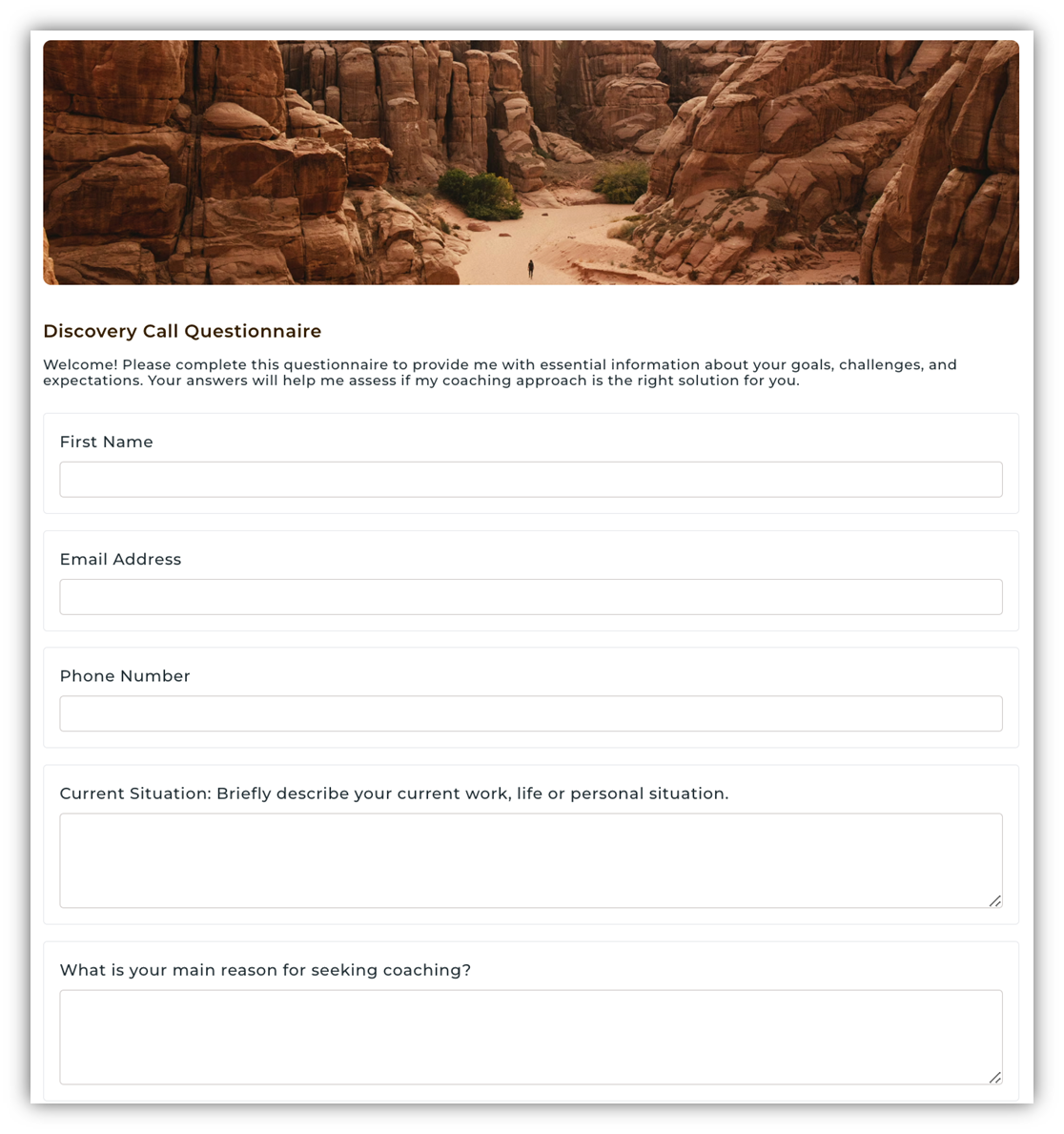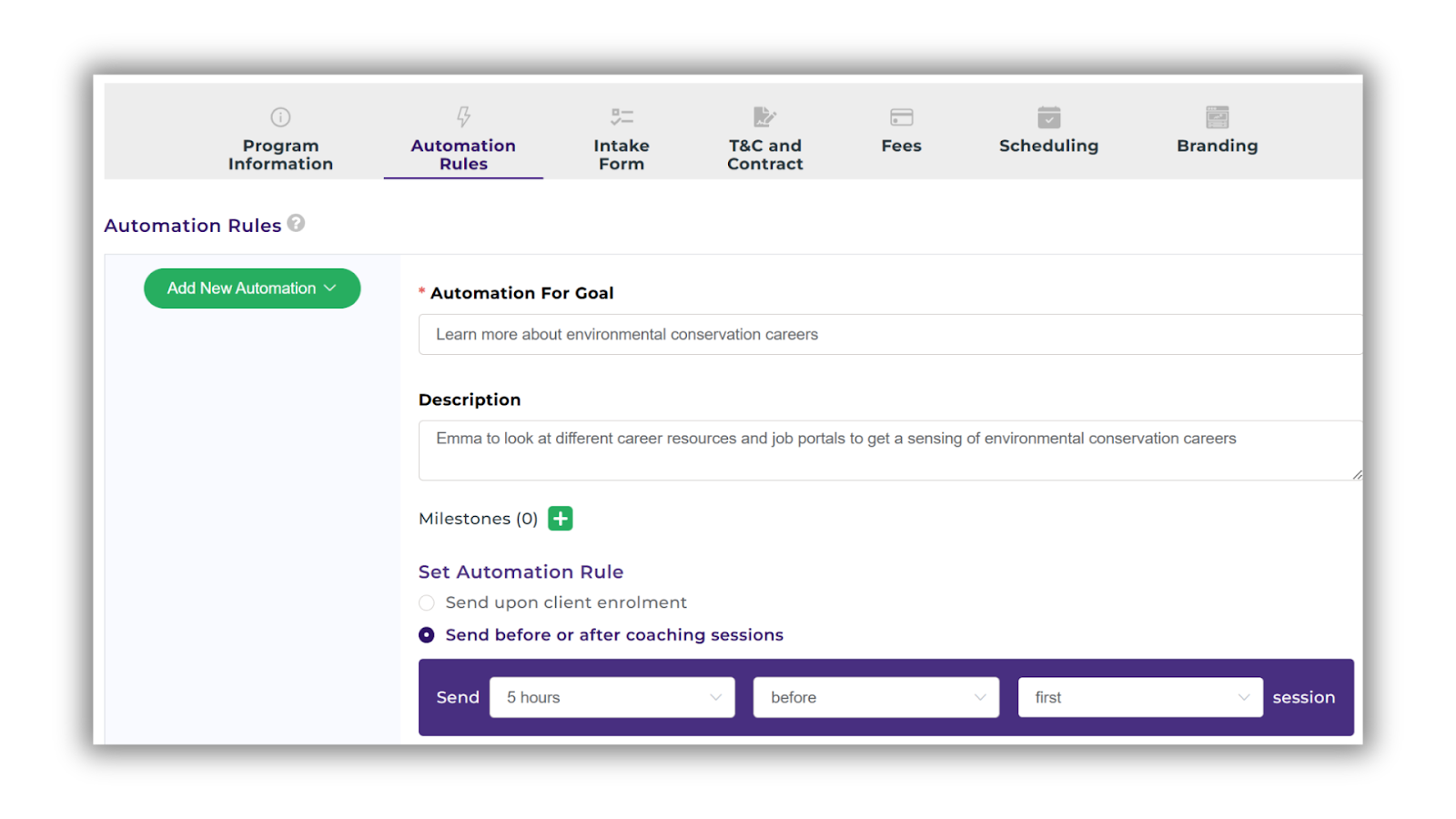April 30, 2024 - Coaching Business
What is a life coach & what do they actually do?
Not sure what a life coach is and what they do? Read more to find out what life coaching is now.

What is a life coach & what do they actually do?
Life coaching is a profession that has garnered significant attention in the realm of personal development in recent years. And the most successful life coaches command a level of respect and admiration unlike any other in the field.
But what is life coaching and what do life coaches do? In this article, we'll dive into the intricate world of life coaching, unraveling the nuances of this transformative practice.
.png)
Drawing from my experiences in providing coaching software to life coaches, we'll examine the distinct roles of life coaches, how they differ from therapists, and the various specializations within the field. We'll also delve into the life coaching process, highlighting how coaches work with clients to set goals, develop strategies, and foster accountability.
Whether you're contemplating becoming a life coach or simply curious about the profession, we break down what the profession entails and its potential impact on individuals seeking change and growth.
What is a life coach?
A life coach is a professional who helps individuals identify their goals, overcome obstacles, and develop strategies for personal and professional growth. Unlike therapists, life coaches focus on the present and future, providing guidance, accountability, and motivation to help clients achieve specific outcomes such as career success, improved relationships, or personal development.
They guide clients towards their personal and professional goals and assist clients in clarifying goals, identifying obstacles, addressing certain topics, and crafting strategies for overcoming challenges.
Understanding the Role and Purpose of a Life Coach
The coaching industry comes with a diverse range of specializations, each tailored to different aspects of an individual's life.
Career coaches, for instance, focus on professional development, aiding clients in career transitions and job satisfaction. Relationship coaches work on improving personal interactions, enhancing communication and conflict resolution in various relationships. Wellness coaches, on the other hand, concentrate on physical health and lifestyle changes, often incorporating elements like nutrition and mindfulness into their coaching.
.png)
The specialization of a life coach significantly influences their approach and methodology. Career coaches might utilize tools like personality assessments like the DiSC profile tool to align a client's strengths with their career goals, while relationship coaches employ strategies to foster empathy and understanding in personal and professional relationships.
Each type of coach brings a unique set of skills that ensure that the guidance provided is relevant and impactful in their area of expertise.
What Is The Difference Between a Life Coach and a Therapist?
While it’s essential you understand the differences between the different types of coaching, understanding the difference between coaching and therapy is also essential.
.png)
Training & Qualifications
Therapists must obtain formal academic training, typically requiring a degree or an advanced qualification, such as a master's or doctorate. They must also acquire a professional license to practice in specific fields, ensuring they meet regulatory standards.
Life coaches, on the other hand, do not need formal academic training or certifications. While professional credentials like the ICF accreditation can enhance their credibility, life coaches primarily rely on their skills, experience, and expertise in a specific area to help clients achieve their goals.
Professional Conduct & Ethics
Therapists are bound by strict industry regulations that dictate their methods of treatment, client confidentiality, and professional ethics. They must follow privacy laws and ethical guidelines that protect client information and ensure responsible care.
Life coaches are not legally required to follow these professional ethics or confidentiality standards. While reputable coaches often maintain client privacy and uphold ethical conduct, they are not subject to the same strict regulations as therapists.
Scope of Work & Areas of Expertise
Therapists are trained to diagnose and treat mental health conditions such as depression, anxiety, trauma, and other psychological disorders. Their work is clinical in nature and often involves long-term treatment to improve a client’s emotional and mental well-being.
Life coaches, however, are not equipped to diagnose or treat mental health conditions. Instead, they focus on helping individuals set and achieve personal or professional goals, improve performance, and develop new skills. They serve as guides and motivators rather than healthcare professionals.
Session Framework & Approach
Therapists typically use unstructured sessions that allow clients to explore their emotions, past experiences, and challenges. Their approach is client-led, meaning the conversation flows based on the individual's thoughts and feelings, and therapists help assess, identify, and develop strategies for resolution.
Life coaching sessions, in contrast, tend to be highly structured. Coaches use goal-oriented strategies to help clients break down challenges, create action plans, and track progress. Coaching is solution-driven, focusing on tangible steps toward success.
Duration of Engagement
Therapy is often a long-term process and, in some cases, can last a lifetime. Since therapists work on deep-rooted emotional and psychological challenges, treatment can take years of ongoing sessions.
Life coaching is usually short-term, designed to provide clients with tools and strategies to achieve specific goals. Once the client gains clarity and implements the necessary changes, they may no longer need a coach’s guidance.
Goals & Focus Areas
The primary goal of therapy is to understand and address behavioral and emotional patterns, helping clients improve their mental health and overall well-being. Therapists work to resolve past trauma, emotional distress, and psychological conditions that may be affecting the present.
Life coaching, on the other hand, is focused on action and results. Coaches help clients develop strategies for success, whether in career growth, relationships, time management, or personal development. Coaching is future-oriented and emphasizes behavioral changes that lead to achieving goals.
Past vs. Future Focus
Therapists analyze clients' past experiences to understand their present thoughts, emotions, and behaviors. The focus is on uncovering deep-seated issues and healing from them.
Life coaches focus primarily on the present and future. Their role is to help clients identify where they are now, define where they want to be, and create actionable steps to bridge the gap. The emphasis is on progress, accountability, and personal empowerment.
The Life Coaching Process
1. Initial Assessment
This stage is crucial for establishing a clear understanding of the client's current situation, challenges, and goals. Life coaches engage deeply with clients to uncover their true aspirations and the obstacles they face, setting the foundation for the coaching journey.
.png)
CoachVantage’s form generator helps to life coaches onboard clients.
It’s not uncommon for life coaches to use coaching software to send out onboarding forms to help them get a better understanding of their clients’ needs before the start of the first session.
2. Developing tailored strategies for goal achievement
Life coaches use their expertise to create personalized action plans that align with the client's unique strengths, weaknesses, and life circumstances.
This stage is where life coaches help their clients to set clear goals. Client's goals are translated into actionable steps, incorporating skill development, behavioral changes, and mindset shifts. As a provider of coaching tools, I've witnessed the significant impact these personalized strategies have on a client's progress.
.png)
CoachVantage’s automation feature allows life coaches to set goals with their clients.
Some life coaches use tools like CoachVantage that allow them to set coaching goals with their clients. Let’s say a coaching client wishes to join the environmental conservation industry, CoachVantage users can use the platform to help them set specific goals of working towards a career change. This can come in the form of a task requiring the client to find out more about the industry before the next coaching session.
3. Accountability and regular sessions
These check-ins are vital for maintaining momentum and ensuring consistent progress towards goals. They provide an opportunity for both the coach and the client to review progress, address challenges, and adjust strategies as needed. This structure of accountability and regular engagement is what makes life coaching an effective tool for personal and professional development.
Benefits of Working with a Life Coach
1. Personal and Professional Growth Outcomes
One of the most striking benefits of life coaching is the profound impact it has on personal and professional growth. Clients often come with a desire to improve certain areas of their lives. And through the coaching process, they gain not only the skills and strategies needed for these improvements but also a deeper understanding of themselves.
Manage Your Coaching Practice in One Place
CoachVantage automates your business workflows so you can focus on impactful coaching results.
This self-knowledge leads to more effective goal-setting and achievement in both personal and professional settings. For instance, individuals who have worked with life coaches often report enhanced performance at work, better relationships with colleagues, and a clearer sense of career direction.
2. Improved Decision-Making and Self-Awareness
Another significant benefit is the improvement in decision-making and self-awareness. Life coaching encourages individuals to reflect deeply on their values, beliefs, and motivations. This introspection leads to greater self-awareness, which in turn enhances decision-making skills.
Clients learn to make choices that are more aligned with their true selves and goals, leading to more fulfilling and authentic lives. The ability to make well-informed decisions also spills over into their professional lives, where they can make strategic choices that benefit their careers.
3. Accountability
Another major advantage of life coaching is accountability. Unlike casual conversations with friends or family, coaching is action-driven. Each session is designed to leave clients with actionable takeaways, ensuring that they are consistently making progress rather than revisiting the same issues without resolution.
A life coach challenges clients to step outside their comfort zones, break through self-imposed limitations, and take tangible steps toward their goals. Coaching is not about simply having a chat—it’s about real transformation.
4. Mindset Shift
Life coaching also facilitates a profound shift in mindset. Many individuals struggle with limiting beliefs or negative thought patterns that hold them back.
.png)
A skilled coach helps clients reframe these perspectives, allowing them to see new possibilities and embrace growth. With regular coaching, individuals develop a greater sense of self-awareness and confidence, empowering them to navigate challenges with clarity and resilience.
How to Choose the Right Life Coach
When embarking on the journey of selecting a life coach, it's crucial to consider several key factors to ensure a successful and enriching experience.
1. Look at their credentials
First, assess the coach's credentials and training. Look for certifications from reputable organizations like the International Coaching Federation (ICF), as these indicate a commitment to professional standards and expertise.
Experience in specific areas relevant to your needs, such as career advancement or personal growth, is also vital. Equally important is the compatibility between you and your coach; the rapport and connection you establish can significantly impact the effectiveness of the coaching.
2. Get a sensing of their coaching methods
Understanding a coach’s methodology is another critical aspect. Inquire about their coaching approach and how they tailor their sessions to individual client needs. This understanding will help ensure that their style aligns with your expectations and personal goals.
Additionally, be aware of potential unethical practices and manipulation tactics. Ethical coaches maintain professional boundaries and prioritize your well-being, avoiding high-pressure tactics or promises of quick fixes. Be cautious of coaches who seem to take control or create dependency, as these are red flags.
Finally, the importance of proper vetting and research cannot be overstated. Take the time to thoroughly research potential coaches, read testimonials, and perhaps even speak to past clients if possible.
This due diligence will help you avoid unethical practitioners and find a coach who genuinely supports and empowers you in your journey. Remember, a good coach should facilitate your decision-making process, supporting you without imposing their own agenda.
Embracing Transformation: The Lasting Impact of Life Coaching on Personal and Professional Growth
Life coaching stands as a transformative tool for personal and professional development. This exploration has highlighted the unique role of life coaches in focusing on future goals and personal growth, distinct from traditional therapy.
With specializations catering to various aspects of life and a process centered around goal-setting and accountability, life coaching empowers individuals to realize their potential and navigate life's challenges. The benefits, including enhanced decision-making and self-awareness, underscore the value of this profession for those seeking meaningful change and growth in their lives.
But as with any other profession, no one is truly alone in their pursuit of professional and business success. Many life coaches rely on all-in-one coaching software like CoachVantage.
If you’re looking for solutions on how you can enhance your life coaching practice, sign up for a 14-day free trial with CoachVantage today!

Glen Oliveiro
Founder of CoachVantage
With a pulse on the coaching industry, Glen personally engaged with hundreds of coaches to develop a platform that addresses their day-to-day challenges. A visionary entrepreneur, Glen is committed to revolutionizing coaching practices through the innovative solutions offered by CoachVantage.
https://www.coachvantage.comYou might also like...
.png)
Top Social Media Marketing Tips for Coaches that Work in 2025
.png)
Top 7 Health and Wellness Coaches That Can Aid You On Your Fitness Journey
